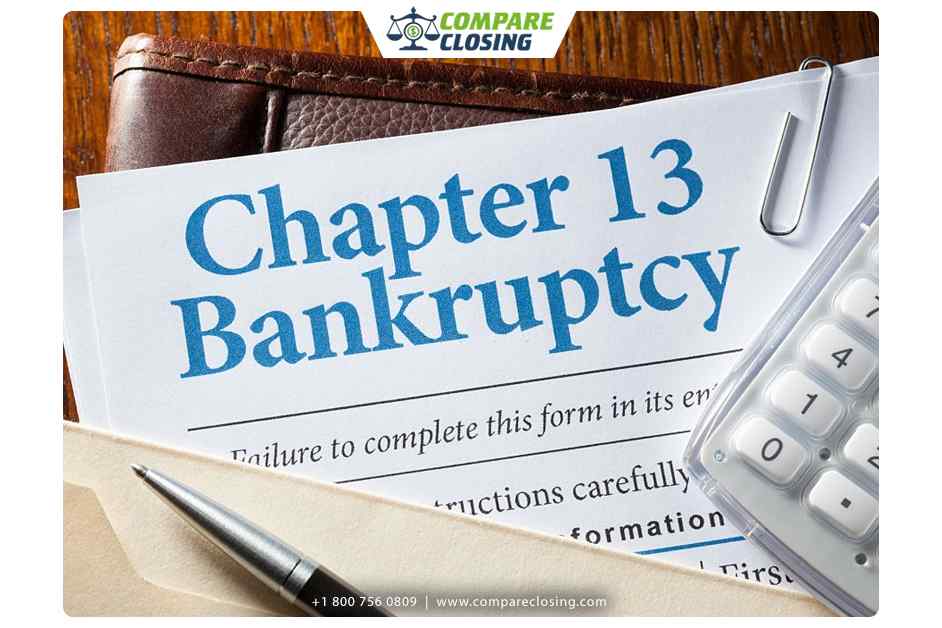Table of Contents
- What Are Netting Escrows & How Does It Work?: The Best Guide - January 2, 2024
- The Secret About Prescriptive Easement: Top Guide 1 Must Know - December 4, 2023
- About Home Equity Loans In Texas And How Can One Obtain It - November 27, 2023
About Chapter 13 Bankruptcy
Chapter 13! No it is not the jinxed home number or the lesson from our history book neither is it the horror movie ….then
What is a Chapter 13 bankruptcy?
A U.S. bankruptcy proceeding where debtors undertake a reorganization of their finances under the supervision and approval of the courts is referred to as Chapter 13 bankruptcy.
Wage-earners plan or reorganization of Chapter 13 is when debtors submit and follow a plan to repay outstanding creditors within three to five years and the repayment plan must provide a substantial payback to creditors.
This payback should be at least equal to what they would receive under other forms of bankruptcy and use 100% of the debtor’s disposable income for repayment.
Whether an Individual or married couples, if one is self-employed or operating an unincorporated business, all are eligible to file for Chapter 13 bankruptcy.
So as part of Chapter 13 financial reorganization, a debtor must submit and follow through with a plan to repay outstanding creditors within 3-5 years.
In a Chapter 13 bankruptcy, an appointed, impartial trustee is paid the agreed-upon monthly amount by individuals.
New changes in the law have been brought over by the CARES Act, which is specifically designed to make the process more available to businesses and individuals economically disadvantaged by the COVID-19 pandemic.
Understanding Chapter 13
A debtor must compile a list of all creditors along with the amount of money owed to each, a list of any property owned, information about income amounts and sources, and detailed information about monthly expenses when applying for Chapter 13 bankruptcy.
Then the debtor pays the agreed-upon amount to the bankruptcy trustee who then distributes the money to the debtor’s creditors. Under Chapter 13 protection the debtors have no direct contact with creditors.
A Chapter 13 bankruptcy, can only be used by people if their debts are below the limits of $419,275 for unsecured debt and for secured debt $1,257,850.
To be considered eligible for Chapter 13, the filers must have completed credit counseling
Chapter 7 and Chapter 13 bankruptcy
With a Chapter 7 bankruptcy which is the most common form of bankruptcy the debtor needs to surrender their homes and their existing debt is erased and they can start fresh but with Chapter 13 bankruptcy the home foreclosure proceeding is terminated.
So a debtor prefers Chapter 13 over Chapter 7 so they can save their home.
Chapter 11 vs. Chapter 13 bankruptcy
Another plan where debt is restructured and paid back over time is Chapter 11 bankruptcy.
Even if it is available to individuals, couples, and businesses, but because businesses are expensive and complicated it’s filed mostly by businesses.
Filers who make too much money and cannot be considered in chapter 7 chose Chapter 11.
With Chapter 13 bankruptcy filing cosigners are protected from being held responsible for the debtor’s loans.
Chapter 13 and the CARES Act
On March 27, 2020, the president signed into law of Coronavirus Aid Relief and Economic Security (CARES) Act which made lots of changes to bankruptcy laws to make the process more available to businesses and individuals who faced financial challenges due to the COVID-19 pandemic.
A short-term relief was provided by the CARES Act to the Chapter 13 bankruptcy debtor.
You can retain your assets but settle your debts with a monthly payment plan. The economic stimulus payments are excluded from the calculations of the monthly income by CARES Act.
Debtors of Chapter 13 bankruptcy are required to pay off their creditors through a monthly payment plan but if they have lost their job resulting in missing the payments and if you can show your financial hardship proofs, the CARES Act extends their plans from three to five years to up to seven years.
But of course, the debtor needs to talk to their attorney and accountant for the Chapter 13 bankruptcy extension.
Example of Chapter 13 Bankruptcy
After A lost his job, and his partner B suffered a medical crisis leaving her unable to work, they fell behind on their mortgage and had arrears of $25,000.
The bank had initiated foreclosure proceedings just then A received a job offer and B launched a small business.
They were able to stop the foreclosure and keep their home by filing for Chapter 13 bankruptcy.
And now with their steady income, they are able to pay off their mortgage each month and also spreading the $25,000 back payment over a five-year period.
Pros of Filing for Chapter 13 bankruptcy
- While it takes longer in Chapter 13 to pay off your debts, but the best part is you’ll have more time to make your payments.
- You can have flexibility on the terms of your payments by the Chapter 13 trustees by either stretching out your debt payment or the reduce the amount or give up on an item on your property and pay less.
- Individual creditors can’t obligate you to pay them in full once you successfully complete a repayment plan under Chapter 13.
- Even if Chapter 13 bankruptcy will stay on your record for years, it is better than explaining the missed debt payments, defaults, repossessions, and lawsuits that could hurt your credit even more to a future lender than bankruptcy.
- Many times you can rebuild your credit sooner by declaring bankruptcy sooner.
- Even though each filing will appear on your credit record you may file for a Chapter 13 plan repeatedly.
- Though a Chapter 13 bankruptcy will not relieve a debtor of their alimony or child support obligations, it can alleviate other financial obligations, which are hindering their financial recovery.
- A Chapter 13 bankruptcy will prevent lenders from aggressive collection action.
Cons of filing for Chapter 13 bankruptcy
- When you are considering filing for Chapter 13 bankruptcy under that plan it can take up 5 five years for you to repay your debts from your disposable income. After spending on necessities like food, shelter, and medical care the income you have leftover is called the Disposable income. So all your extra cash will be tied up during the entire repayment plan.
- A negative impact on your credit for some time is also expected with the filing of bankruptcy.
- With a Chapter 13 bankruptcy, you will lose all your credit cards and it remains in your credit report for up to 10 years.
- If you don’t already have one then getting a mortgage with bankruptcy can be impossible.
- If you went through bankruptcy proceedings under Chapter 13 within the last 6 years then you will not be able to file for Chapter 7 bankruptcy.
- And similarly, you cannot file for Chapter 13 bankruptcy if a previous Chapter 7 or Chapter 13 case was dismissed within the past 180 days
- After paying at least 70% of your unsecured debts, if you obtained a Chapter 13 discharge in good faith then the 6-year ban on Chapter 7 bankruptcy will not apply.
- Some forms of debt may be addressed in the repayment plan for Chapter 13 bankruptcy, but it won’t relieve alimony or child support obligations and also not relieve any student loan debt.
- Some of your debts, such as a mortgage lien, even after you complete the bankruptcy proceedings would still be needed to pay.
Conclusion
It is an important decision to file for bankruptcy and it requires mulling over both the pros and cons of filing.
If you are left with no other option but to file for Chapter 13 bankruptcy then you need to discuss the process with an experienced attorney, who can provide you with legal guidance so you make the right financial decision.
Amanda Byford
Amanda Byford has bought and sold many houses in the past fifteen years and is actively managing an income property portfolio consisting of multi-family properties. During the buying and selling of these properties, she has gone through several different mortgage loan transactions. This experience and knowledge have helped her develop an avenue to guide consumers to their best available option by comparing lenders through the Compare Closing business.






My sister would like to file for bankruptcy since she can no longer pay for her mortgage, which is why she has decided to start looking for a lawyer. Well, thank you for sharing here that it would be best to opt for chapter 13 since this will be perfect for the repayment plan. I also agree with you that this may help people with unsecured debt.
I find it fascinating that you could get control over your outstanding debts and financial responsibilities by filing for a chapter 13 bankruptcy. I think having financial freedom should be your priority after experiencing a financial rut. It might be a good idea to seek out lawyers that can help with this to avoid legal problems.
Thanks for explaining that it will take years for a chapter 13 bankruptcy to be processed fully. I have a friend who would like to consult a chapter 13 bankruptcy attorney soon because he has incurred a lot of debt these past few years in order to keep his business open. Seeing that there is no way he will be able to pay those in time, it would be best to consider his legal options.